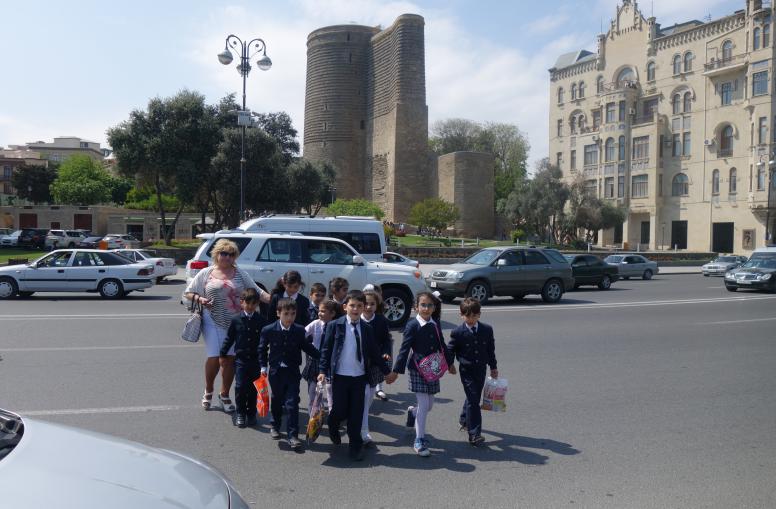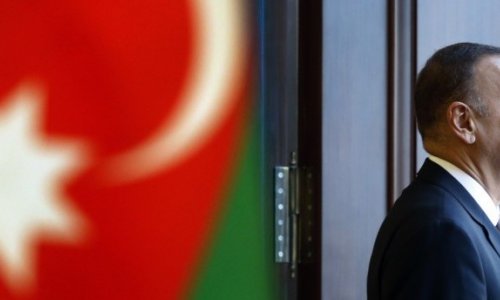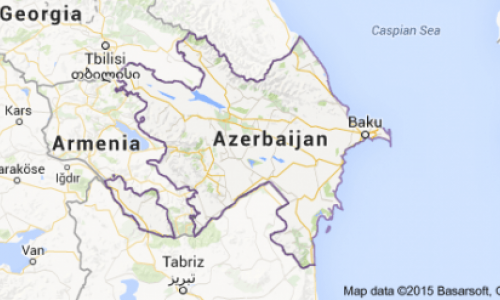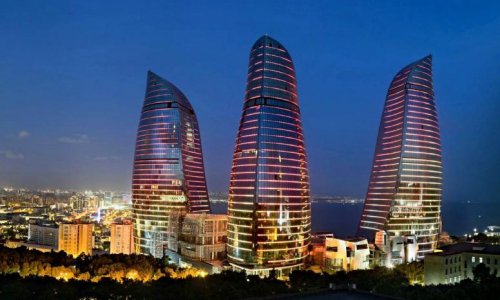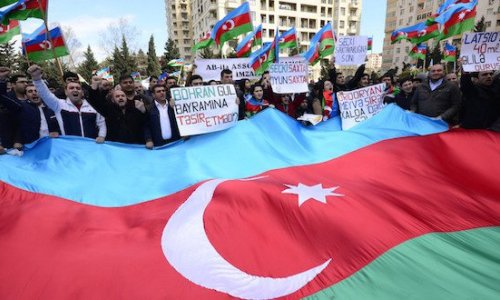by Ceyhun Osmanli
While the threat of Islamic terrorism and radicalisation still exists to some extent in Azerbaijan, prevention measures have undoubtedly been very effective, writes Ceyhun Osmanli.
Ceyhun Osmanli ihas been a member of parliament in Azerbaijan since 2010. He is also a board member of the World Bank and IMF Parliamentary Network and a member of the Azerbaijani delegation to Euronest Parliamentary Assembly. He is currently the co-rapporteur on Culture and intercultural dialogue in the context of the Eastern Partnership.
The nature and spread of the phenomenon of radicalisation in European Eastern and Southern neighbourhoods is currently the focus of much global attention. Little wonder with terrorist atrocities recently being perpetrated in the name of Islam in Tunisia, France and Kuwait.
And yet, Azerbaijan continues to be a beacon of secularism and tolerance notwithstanding the recent turbulence in the Muslim world. Walking in the streets of the Azerbaijan, a country with a predominantly Muslim population, one cannot help admiring the culture of acceptance. Even during the holy month of Ramadan, all the restaurants and cafes in Baku are open with plenty of people in them. Some people wear modern dresses, others more traditional ones. Some are drinking alcoholic beverages whereas others prefer soft drinks. Judgement and enforced values are absent here.
Azerbaijani people have an inherent tolerance to such differences. Unlike Jewish communities elsewhere, in Azerbaijan the Jewish community live peacefully alongside their Muslim and Christian brothers. They were granted the right to build their own towns and villages. Tolerance of religious freedom is highlighted by the preservation of the Armenian churches in the centre of Baku, despite the Armenian occupation of 20% of Azerbaijani territory.
In the 16th century, the Azerbaijani Safavid State attached a great deal of importance to Islam faith but the Zarathustrian Community managed to preserve their autonomy and to practice their religion freely. Even today, Baku is home to the most significant Zarathustra temple. Its perfectly preserved state attracts many visitors eager to rediscover the rich Zarathustra heritage.
It is therefore not surprising to witness the striking contrast between Azerbaijan and the rest of the Islamic world. Whereas radicalisation is increasing in countries such as Tunisia, Egypt, Libya, Iraq and Syria, there has been a ”weakening” in the phenomenon of radicalisation in Azerbaijan.
This is not something that has come about by default but, rather, is the direct result of a series of steps undertaken by the Azerbaijani government. They have achieved this through well-timed anti-terror operations of the national security forces of Azerbaijan. Working to curb the presence of members or potential members of ISIS has helped combat radicalisation. Measures which have contributed to this include, the monitoring of potential ISIS recruits facilitating early detection of radicalisation. This is just one of the reasons why radicalisation in Azerbaijan, a country with a population of just 9, 5 million, is lower than in Europe.
That is not to say that the threat of radicalism is not present in Azerbaijan or, as elsewhere, has not grown since the country became independent from the Soviet Union 24 years ago. But the telling point is that while the threat of Islamic terrorism and radicalisation still exists to some extent in Azerbaijan, prevention measures have undoubtedly been very effective.
Let us remember that Azerbaijan is a secular republic with a Muslim majority but one example of our success in this area is the peaceful co-existence of groups such as Christians and Muslims, Sunni and Shia. People of Sunni and Shia denominations, for example, pray in the same mosques in Baku. This, I believe, is unique and shows the positive impact of what could be called the multicultural model that exists within Azerbaijani´s secular system.
Azerbaijan has, in fact, been a role model for the Muslim world in the past. But that was before the collapse of the Soviet Empire in the early 1990s, which gave way for radical elements to emerge in Azerbaijan as well as neighbouring countries.
However, Azerbaijani´s counter-radicalisation measures have clearly been effective in checking the rise of radicalisation in the country and this has contributed to Azerbaijan once again becoming a role model of religious harmony for neighbouring states in South Caucasus.
Indeed, this is a model that I believe could be exported to help promote peace and reconciliation in the South Caucasus as well as other parts of the Muslim world. And, with the ongoing threat posed by the so-called Islamic State and other terrorist groups, the need has never been greater.
The threat posed by radicalisation has also been staved off by the current government focusing on redeveloping Azerbaijan, including the creation of more than one million new jobs, something, which has helped steer young people from the path of radicalisation.
I am a pragmatist and realise that the threat of radicalisation still exists in Azerbaijan but would argue that this is only from small, marginalised groups that advocate a certain form of political Islam. These are on the margins and are not supported by the majority of Azerbaijani society nor do they have sufficiently strong resources to challenge the government.
In a multi-ethnic country, Azerbaijan has carved out its own model for religious and racial harmony. This is a model that is worth promoting.
Perhaps most importantly, the country acts as a bridge between the West and Arab worlds. It is a young country but it is important to acknowledge our development and modernisation in the 24 years of our independence.
Azerbaijan continues to be an example of multiculturalism, at a time when world leaders such as Angela Merkel, François Hollande and Tony Blair have publically declared the end of multiculturalism. By hosting annual International Multiculturalism Forums, Baku shows its commitment to multiculturalism.
The Haydar Aliyev Foundation’s support of the reconstruction of the catacombs in Vatican as well as the cathedral in Strasbourg is a sign of openness and respect for other nations, cultures and religions.
In 1918, Azerbaijan was the first democratic country in the Muslim world to achieve full representation of all minorities in its parliament. Such minorities are still part of the democratic life of the country to date. This reflects the pluralism of the country and ensures wider, more inclusive legislation.
Looking to the future, Azerbaijan will continue to promote its harmonious approach towards minorities – both religious and ethnic. Our country has always respected different religions and nations. Tolerance is our inherent choice but we seek greater EU and Western support in understanding the complexities and the needs of our region and our people.
www.ann.az
Follow us !

